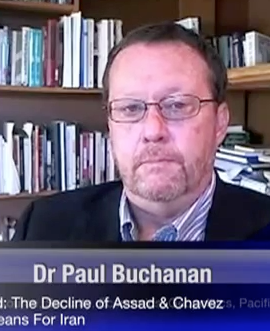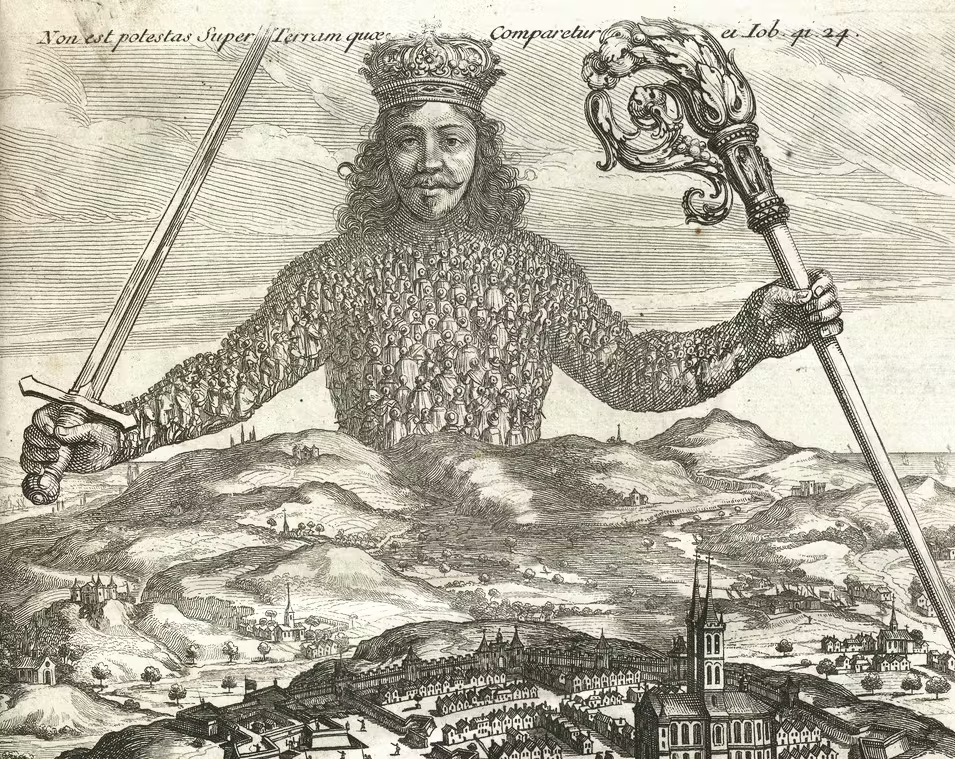
When people think about coups d’etat, they tend to think about armed interruptions of the constitutional order, usually perpetrated by the military against an elected government. Such was the case with the abortive coup staged by elements of the Turkish military against the government of Recep Erdogan last July. Note that I do not say “democratically” elected governments, as usurpations of the constitutional order can also happen in electoral authoritarian regimes such as that of Hosni Mubarak in Egypt in 2011 (only to be followed by a “full” coup against the subsequently elected Muslim Brotherhood government of Mohamed Morsi in 2013).
The traditional origins of coups as forms of regime change, known as golpes de estado in Spanish, do in fact hark back to military interventions against civilian governments, and that remains its most common form. But another form of coup has emerged, minus the bloodshed and state of emergency so often associated with military-led coups (I say military-led because it is very seldom the case that the armed forces act alone when moving against the government of the day). Rather than an interruption and suspension of the institutional process by military means, it is a usurpation from within the institutional order by constitutional means. Instead of bullets fired by soldiers it is ballots cast by politicians that overturn the will of the people prior to scheduled elections. The insurrectionists belong to and work within the political system. This is what is now known as a constitutional coup. In order to understand this new form of “golpismo” we need to consider two background factors.
First, liberal democracy comes in two forms: presidential and parliamentary systems. Although it is possible that constitutional coups can happen in parliamentary systems (such as the removal of governments by Governor Generals in Pakistan in 1953 and Australia in 1975), they most often happen in presidential systems. By their very nature parliamentary systems have built-in insurance against constitutional coups because there are established means to remove a government, specifically via votes of no-confidence followed by snap elections. The rules governing both the vote and the election may vary from country to country, and there may be a ruckus surrounding such events, but they are an integral part of parliamentary democracy and, some might argue, a much finer tuned aspect of democratic governance than that allowed by its alternative.
Presidential systems provide no such mechanism for the removal of governments prior to their end of term. By definition, any such move constitutes an institutional crisis as the system is based on a separation of executive power from legislative authority. In parliamentary systems the executive (in the form of cabinet) continues to act as a parliamentary faction, to include ministers discharging responsibilities as members of parliament. In presidential systems that is not the case and executive authority can often be confronted by or exercised against legislative majorities (as is currently the case in the US). No matter what the majority in the legislature may wish, it cannot simply call for a vote of no-confidence in the government of the day. In fact, it has no legal basis to do so.
When the legislative and executive branches in presidential systems are locked in impasses or stalemates over any number of potential issues, the resolution mechanism boils down to supermajorities in the former and veto powers in the latter. Ideally, in bicameral legislatures the resolution sequence is usually this: the president introduces or supports a bill submitted for approval by the legislature. The opposition obtains a supermajority against the bill in the lower house, which is vetoed by the president, which is then upheld or overturned by a supermajority in the upper house. In unicameral legislatures the sequence is either one and done or a second legislative supermajority vote is taken after a veto in order to ratify or overturn the veto. Neither of these resolution paths provide a mechanism for the removal of the executive.
This process is cumbersome but offers the benefit of providing space for compromise between the executive and legislature as a bill winds its way through the ratification process. But what about removal of an elected government before its term is up? That is where the second key backdrop factor comes into play: disloyal opposition.
Before we examine the role of disloyal oppositions in constitutional coups, here is a summary of what constitutes loyal and disloyal opposition in a democracy (there is no point in using those terms in authoritarian regimes).
Loyal oppositions are those that, having been defeated in elections or confronted by an opposing party in executive office (remember, the problem is unique to presidential systems), abide by the rules of the political game and wait for the next electoral opportunity to gain executive power. During the meantime they work as much as possible to find areas of compromise so that the machinery of governance can continue to serve the public good (or at least be seen as doing so). Even if token, concessions are exchanged so that consensus on issues of policy can be achieved. Only in the most egregious case of executive misconduct, usually involving criminality or gross negligence, does a loyal opposition begin to contemplate the unthinkable, which comes in the form of impeachment (that is, forcing the resignation of the executive under pressure from the legislature backed by the authority of law enforced by state security agents).
Disloyal oppositions are those that refuse to accept the outcome of elections and/or the legitimacy of a particular government and use their political influence and power to bring down that government by any means short of force. This includes being deliberately obstructionist when it comes to passing legislation, flaunting rules governing acceptable political discourse, manipulating or colluding with media to plant false accusations against incumbents, refusing to authorise budgets and confirm executive appointments, and generally acting in every possible way to stymie government policy initiatives, make it impossible for the executive branch to function effectively within the tripartite, separation of powers framework of constitutional government, and to promote discontent with and distrust of the government and its political supporters.
The classic modern instance of a disloyal opposition was the Christian Democratic led opposition to Salvador Allende’s Unidad Popular government in Chile from 1970-73. The result of that disloyalty is well known.
Chilean Military Junta, 1973. Source: Biblioteca del Congreso Nacional de Chile (Library of the Chilean National Congress), via Wikimedia Commons.
Not all disloyal opposition need result in full fledged military coups. Instead, they can veer down the path of the constitutional coup. Consider the case of Bill Clinton’s impeachment in 1998-99. In late 1998 the Republican controlled House of Representatives voted to impeach Clinton on two counts of perjury and two counts of obstruction of justice. The charges related to his accounts of the affair he had with White House intern Monica Lewisky, the salacious details of which were vividly spelt out by Independent Counsel Ken Starr (Starr has recently been forced to resign from his position as president and chancellor of Baylor University for his role in covering up sexual assaults on females by football players). Mr. Starr was appointed by the Speaker of the House at the time, Newt Gingrich, he of the three marriages and many affairs (including with subordinates).
In 1999 the Republican controlled Senate held a trial and voted on the charges. Needing a two thirds (67 seat) majority for the impeachment to succeed and with 55 Senators on the Republican side, the impeachment vote failed when 50 voted in favour on the obstruction charge and 45 voted in favour on the perjury charge. Clinton remained in office, albeit significantly hamstrung by his near-miss.
The issue here is that the impeachment was over a private sexual affair, not an act of public malfeasance . It was led by people who themselves had similar skeletons in their closets and who did so in part just to weaken the president even if their efforts to impeach him failed (given media coverage of the story). More specifically, it was not about gross incompetence, criminal behaviour, military mismanagement, or even lying to Congress about any matter of policy. Instead, it was about the president receiving fellatio from and using a cigar as a sex toy on Ms. Lewinsky during trysts in the Oval Office, then trying to cover it up. It is doubtful that the founding fathers, in Article Two (Section Four) of the Constitution, had this in mind when they wrote that impeachment was to be used only in exceptional circumstances involving “treason, bribery or other high crimes and misdemeanours.”
That is a slippery slope. And nowhere is the bottom of that slope more evident than in the recent impeachment of leftist President Dilma Rousseff of Brazil.
Brazil has history with impeachment. In 1992 then president Fernando Collor de Mello resigned after Congress voted in favour of his impeachment on charges of bribery and misappropriation of funds. Similar charges of “budgetary mismanagement” were brought against Ms. Rousseff in 2016 by a Congress dominated by the center-right PMDB, Brazil’s largest party, which has the most seats in Congress (66) and is the one to which her vice president Michel Temer belongs (the coalitional aspects of Brazilian politics are too complex to get into here but suffice it to say that Rousseff was trying to keep her friends and allies close and her enemies closer. That did not work out as planned). By the time the first reports of fiscal irregularities surfaced in 2015, the PMDB-led majority in Congress had gone full-blown disloyal in a context of economic stagnation and assorted crises (Zika, lack of Olympic preparations) and were itching to find a reason to remove Rousseff (who was not anywhere as popular as her Workers Party predecessor Luis Ignacio “Lula” da Silva). The investigation into financial wrongdoing gave them their window of opportunity.
The charges against Rousseff stemmed from “Operation Car Wash” (Operacao Lava Jato) into bribery and corruption involving the state oil monopoly Petrobras, assorted construction firms, politicians, bureaucrats and financial entities. Without going into the details, let’s just say three things: First, corruption is a way of life in Brazil, not just an aspect of how the economic and political elite behave (hence the phrase fazer jeito, or ” a way of doing things” on the sly). Of those legislators demanding her impeachment and who voted against her at the Senate trial, over a dozen are being investigated or have been charged with corruption themselves, including now-president Temer. Included among the luminaries who voted to oust her is a former Army officer who was involved in her torture when she was imprisoned by the military dictatorship in the early 1970s, and who said during the proceedings that it would have been best that she were killed while in custody.
Secondly, creative accounting by Brazilian governments is a time-honoured tradition that crosses party lines. Most reputable political and financial analysts agree that not only was Ms. Rousseff not personally involved or benefitted by dodgy Treasury figures, but that in the scheme of things the book fiddling done by her government was not criminal but in fact par for the course in Brazil. Unfortunately for her, Article 85 of the Brazilian constitution and the Fiscal Responsibility Law specifically prohibit mismanagement and disregard for the federal budget. This was the seldom used rope that Congress hung her with.
Thirdly, no impeachment in Brazil can occur without the tacit assent of the armed forces. Of all the sordid aspects of Rousseff’s impeachment, this is the most sobering one. 30 odd years after they returned to the barracks, Brazil’s military still sees forced removal of elected presidents as a viable option–so long as it does not involve them directly.
This is why what happened in Brazil a week or so ago was a constitutional coup.
Although there have been variations on the theme, impeachment is the weapon of choice for constitutional coup plotters. They may use institutional means, but their intentions are disloyal and their objectives sinister at heart. Their motivations have nothing to do with honesty and transparency in government or defending democracy. Instead, they are about playing the system for tactically opportunistic partisan gain.
Brazil is not the only Latin American country that has witnessed a congressional coup. In 2012 Paraguayan President Fernando Lugo was impeached and removed from office, ostensibly over his mishandling of a land occupation that ended in violence. He was given two hours to prepare his defense and was replaced by his vice president, who sided with the legislative opposition. Subsequent publication of US embassy cables by Wikileaks revealed that as early as 2009 opposition leaders had begun to make plans to use impeachment as a way of removing Lugo from office (Lugo was elected in 2008). They eventually succeeded.
There is a problem with this strategy: more than one can play that game, and learning curves may teach that rather than the exception, the use of impeachment in pursuit of a constitutional coup can become the new norm. That in turn can spur a contagion effect, whereby politicians in other democracies with presidential systems see merit in pursuing similar courses of action. Worse yet, repeated recourse to the constitutional coup as partisan weapon can lead to outright military intervention. At that point the return to tradition trumps any constitutional niceities.
One should take this into account when pondering the activities of political actors in presidential-system liberal democracies, be they big and small. Because in a world where military-led coups are considered particularly thuggish and therefore distasteful, the constitutional coup is the genteel authoritarian’s game.
Summary.
While military-led coups are a clear sign of political instability, a new form of institutional fracture has emerged in the form of constitutional coups. Using impeachment as a tactical instrument, often times backed by key social actors and always with at least tacit military approval, disloyal legislative factions in democracies with presidential systems of governance remove or attempt to remove incumbents of executive positions not for serious crimes or gross mismanagement but for purely partisan reasons. Once this is accomplished in one polity there is a risk that it will be emulated elsewhere. Moreover, once a constitutional coup is successfully orchestrated for reasons other than serious crimes or failures to properly discharge the duties of executive office, the lesson learned by all political actors is that it is a legitimate tool of political competition in presidential democracies. That is a recipe for political instability.
36th Parallel Assessments advises investors and diplomatic missions to closely monitor executive-legislative dynamics in democracies characterised by presidential systems, especially new or immature democracies without histories of political consensus building or compromise. This is due to the fact that while not as dramatic as a military-led coup, constitutional coups can have a similar impact on the material and political fortunes of those on both sides of the confrontation.















